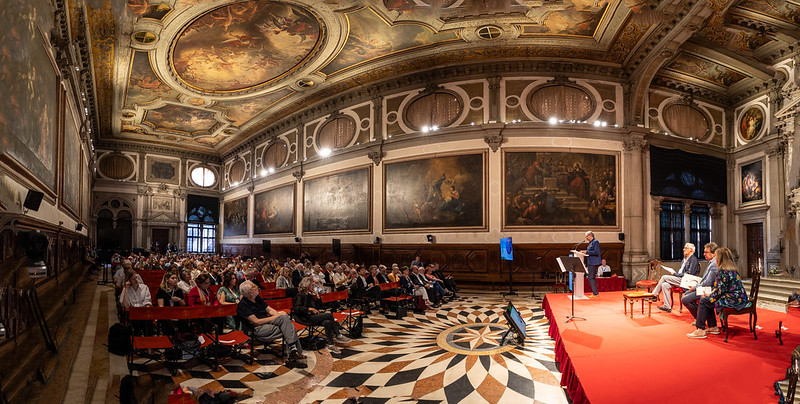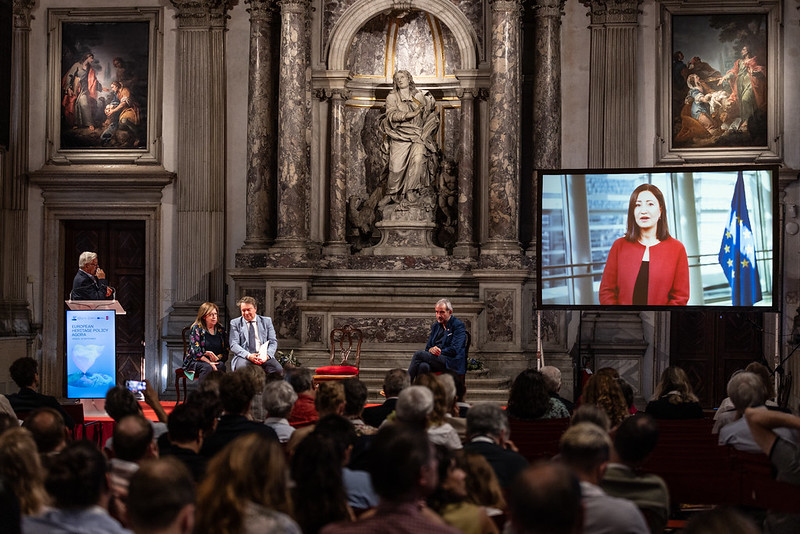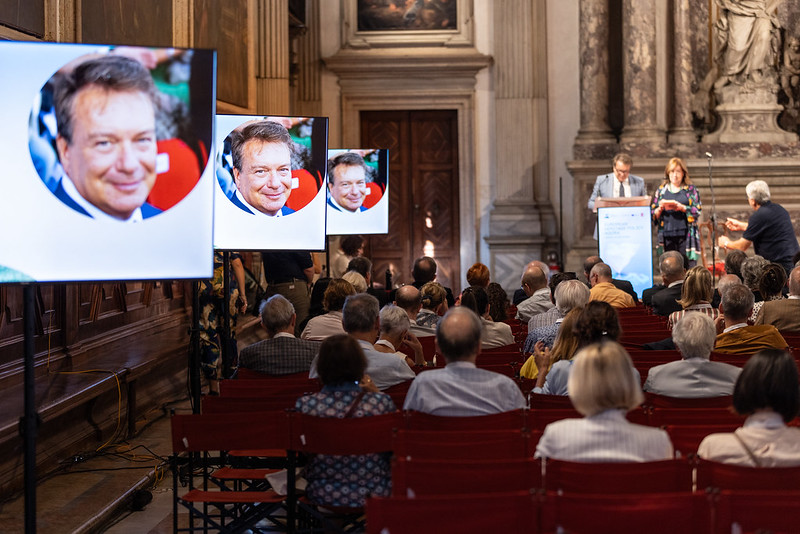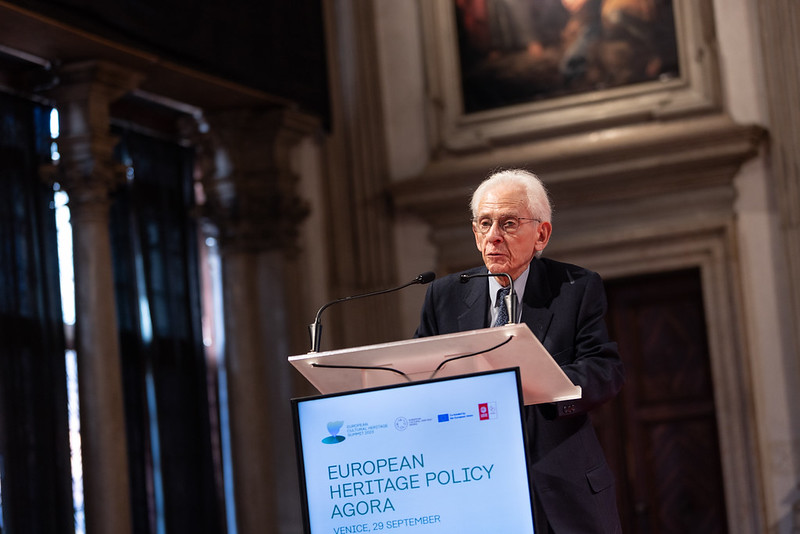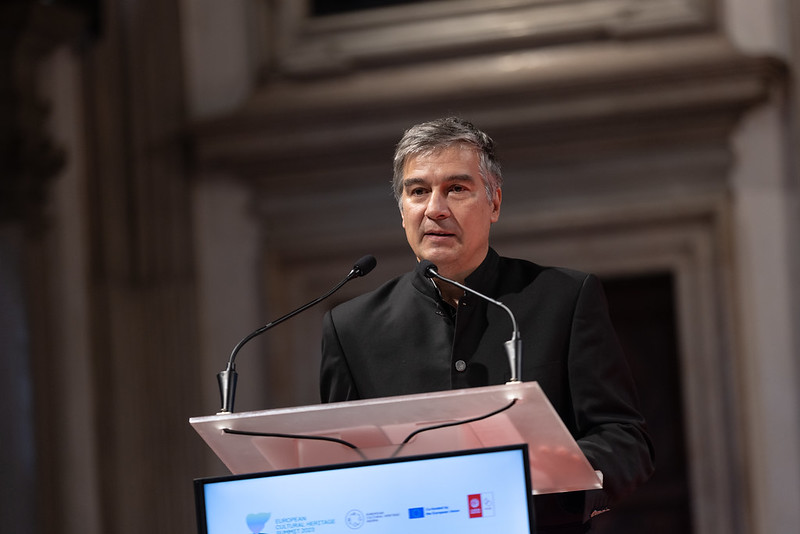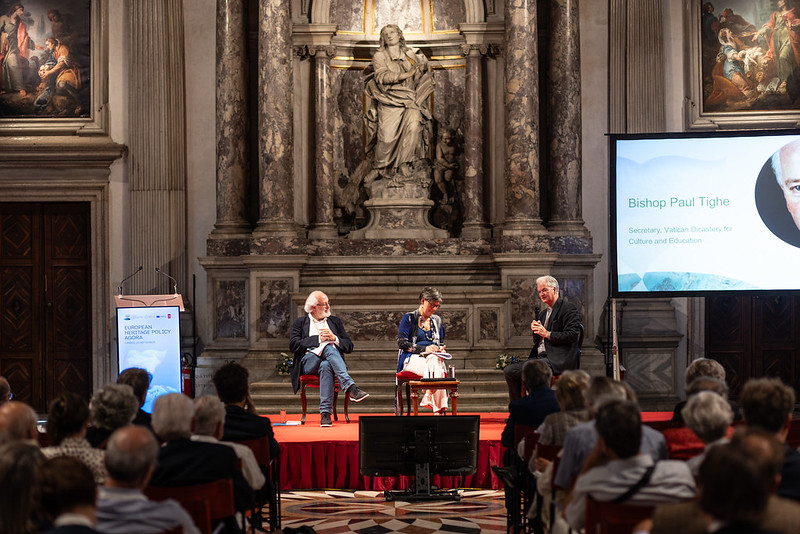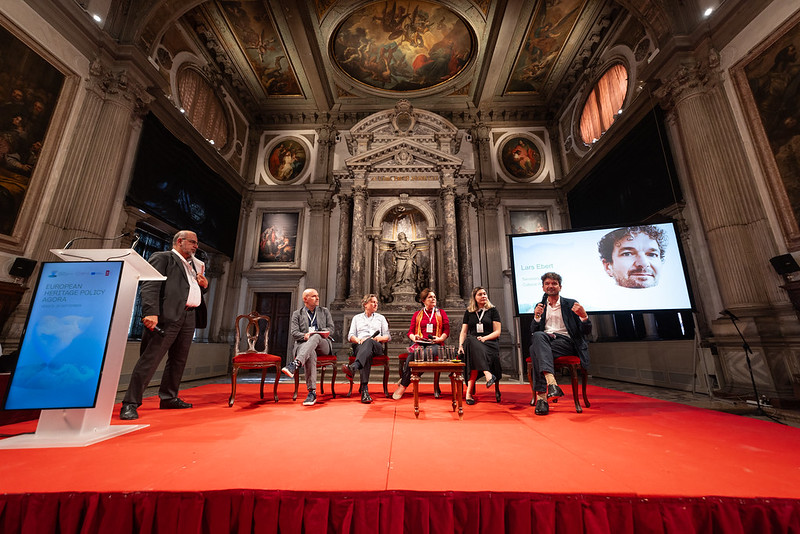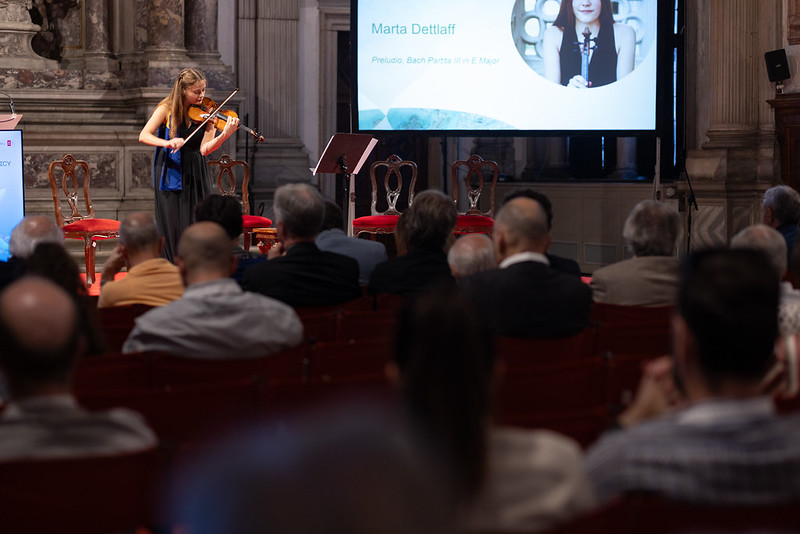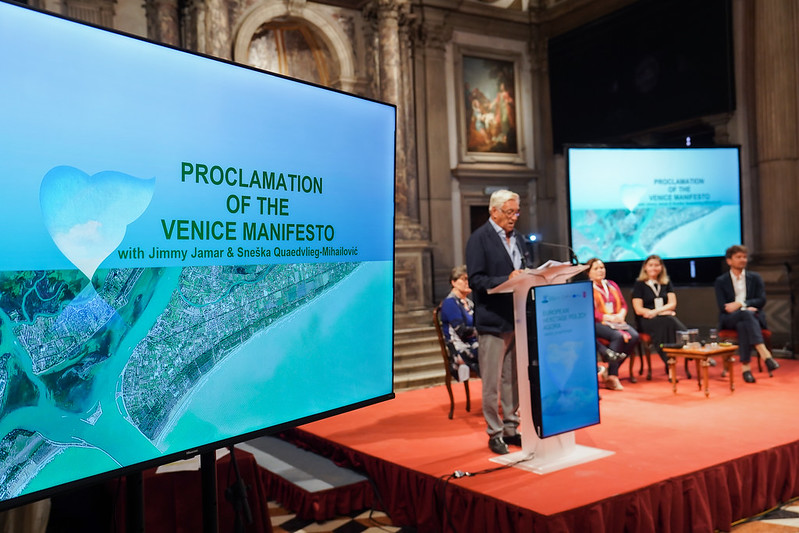2023 European Heritage Policy Agora promotes a European Cultural Citizenship
The European Cultural Heritage Summit 2023 ended on a high note with the annual European Heritage Policy Agora, which saw the launch of the draft text of The Venice Manifesto: “For a European Cultural Citizenship”. The event took place on the morning of 29 September at the exceptional heritage site of the Scuola Grande di San Giovanni Evangelista and gathered over 200 participants.
From climate change, threats to democracy and a looming economic crisis, it is a challenging time for Europe. To confront these multifaceted issues threatening our shared continent, we must gather together to reflect on what binds us – true to the original definition of an Agora – and in Venice we carried out this important exercise. Bringing together artists, historians, composers and prominent individuals in civil society and the European heritage community, the Agora explored the value and plausibility of a European Cultural Citizenship.
Opening session
Jimmy Jamar, Head of the Europa Nostra Brussels Office, opened the meeting, followed by introductions from Europa Nostra’s Executive President, Hermann Parzinger, who called for greater involvement of heritage in the political space: “Cultural heritage is often overlooked, considered idealistic, unachievable, utopian and does not get the attention nor funding it deserves. But the reality is, culture matters to us all”.
The national and EU political perspective was brought to the event by several high-level speakers. Newly appointed European Commissioner for Innovation, Research, Culture, Education and Youth, Iliana Ivanova, sent a video message with a poignant message ahead of one of the biggest democratic exercises in Europe and the world: “Next year we go to the polls for the EU elections. We need a sense of cultural citizenship to orientate and inspire us”.
Jimmy Jamar also read a congratulatory letter from Deputy Prime Minister of Bulgaria, Mariya Gabriel, who recognised culture as an “innovative ecosystem with solutions to some of today’s biggest challenges”. On behalf of the City of Venice, Environment Councillor Massimiliano De Martin called for a united Europe, always taking into consideration the past of the whole continent.
Inaugural Europa Nostra Lecture
This Agora was indeed poignant in many ways, as it featured the inaugural Europa Nostra Lecture. Launched in Venice on the occasion of the organisation’s 60th anniversary, the Lecture Programme was created at the suggestion and thanks to the generous donation of Dr Peter Collins, Diamond Member of Europa Nostra from Oxford (UK), in memory of his late wife Margot Collins, who was a long-standing member and supporter of Europa Nostra.
Alberto Toso Fei, considered by many the narrator of Venice, gave the inaugural lecture entitled ‘You speak Venetian, but you don’t know it’. Exploring the cultures, peoples, knowledge, and customs of Venice, Alberto Toso Fei eloquently articulated how Venice, in being a wonderful meeting point and exchange ground, was transformed into the city we know today and in turn has become part of the heritage of the entire world. The lecture perfectly set the scene for the following panel discussions.
Panel 1: European Cultural Citizenship – a Utopia?
The first panel, moderated by Europa Nostra’s Secretary General, Sneška Quaedvlieg-Mihailović, addressed the theme of “Utopia?” and invited the question: is the ambition of a Europe united through culture and heritage realistic? Featuring eminent laureates of the Helena Vaz da Silva European Award, this panel brought together those engaged artists, historians or spiritual leaders who have dedicated their lives with distinguished activities to disseminate, defend and promote Europe’s cultural heritage.
The panel began with an online intervention from the historian Bettany Hughes, who noted that “a European Cultural Citizenship is possible, but it should never be mono-cultural”. The intervention was followed by Maestro Jordi Saval, who emphasised the fundamental role of music and rightly stated that without cultural action we would not exist. When responding to the question of the existence of a cultural citizenship, Bishop Paul Tighe drew parallels with theology and described culture as a sense of European identity which can help grow appreciation of others and our traditions. Oksana Lyniv, shared an example of young musicians from Ukraine experiencing the transformative power of heritage to overcome the realities of the present. This note was reinforced by 2023 laureate Jorge Chaminé, who closed the first panel noting that: “when it comes to a European citizenship, heritage is a fundamental actor for the transition from utopia to EUtopia” (read the full speech).
Panel 2: European Cultural Citizenship – a Reality?
The second panel, moderated by Luca Jahier of the European Economic and Social Committee, brought together European leaders from civil society organisations active in the field of culture or in the wider field of politics. The discussion invited speakers to share their experiences and, more importantly, their perception of the reality of promoting and enhancing culture and heritage across the European continent as a vector of togetherness and resilience for Europe’s society and its citizens.
Lars Ebert of Culture Action Europe stressed the need to advocate for decision and policy-makers to not only recognise culture as an important sector in its own respect, but also as a vector that cross-cuts through all other policy areas, and pointed towards the Cultural Deal for Europe campaign by Europa Nostra, Culture Action Europe and the European Cultural Foundation (ECF). ECF also took the floor, with its Secretary General André Wilkens drawing parallels from his experience in the supposed socialist “utopia” of East Germany, and the arrival of “reality” with the fall of the Berlin Wall, and concluded that if we are to build a real utopia we need to make sure it is relevant to today. This was seconded by Petros Fassoulas of the European Movement International, who noted that his organisation was built on the concept of utopia, and creating a better Europe after the Second World War, but reminded the audience not to get lost in the idea of utopia, and not to forget that the fundamentals that underpin our Europe are not just politics and economics but also culture.
Sorina Neacsu, Vice-President of the European Students Association for Cultural Heritage, stressed that a cultural citizenship is possible, but must integrate diversity and solidarity at all times. Responding to a question on her experience of culture being used to build trust and confidence in former Yugoslavia, Amra Hadžimuhamedović, Director of Centre for Cultural Heritage, International Forum Bosnia, emphasised that for a cultural citizenship to work it would have to be borderless, fluid and linked to the pluralities of Europe. Alexandra Mitsotaki, President of the World Human Forum, joined the panel online, and closed with a powerful call for a cultural and ecological citizenship and a “movement of empowered, energised, autonomous, citizens [that] can start in Europe”.
With many valuable insights to reflect on, the audience also enjoyed musical performances by the renowned Serbian flautist, Ljubiša Jovanović, and violinists from the European Union Youth Orchestra, curated by its Secretary General and Artistic Director Marshall Marcus.
Closing session
Following these moving and powerful exchanges, Jimmy Jamar and Sneška Quaedvlieg-Mihailović, on behalf of Europa Nostra, took the stage one final time to unveil the draft text of The Venice Manifesto: “For a European Cultural Citizenship”.
“We must take it into our own hands and say that Europe can be a more peaceful, inclusive, sustainable and beautiful place. Proclaiming this in Venice is important”, stated the Secretary General of Europa Nostra.
Together, Europa Nostra and its partners make this a declaration for a new democratic and embracing fellowship, rooted not in the physical political geography of the continent, but self-emancipated and open to all, a citizenship which can go beyond the rudimentary limitations of politics and economics, and embrace the spiritual and philosophical roots of Europe’s heritage, tangible and intangible, which is part of our shared values. The Manifesto will be finalised in October and become a key part of Europa Nostra’s communication and engagement strategy for the months to come and ahead of the 2024 European Parliament elections.
More information
European Heritage Policy Agora: programme booklet | video recording | photo selection | twitter thread
